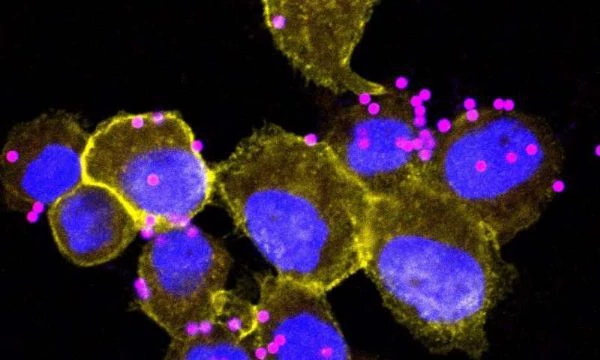CRISPR Screening Finds SLC4A7 Is Essential for Acidification of Phagosomes

CRISPR Screening Finds SLC4A7 Is Essential for Acidification of Phagosomes

Copyright © iCell Bioscience Inc, Shanghai 2018-2019
Macrophages are the bodyâÂÂs first line of defense against pathogens, and phagosome acidification is an essential step for macrophages to clear pathogens.
Researchers from the CeMM Center for Molecular Medicine of the Austrian Academy of Sciences, the University of Geneva, Switzerland, and the University of Vienna have recently discovered that the bicarbonate transporter SLC4A7 (which is rapidly and massively expressed after macrophage differentiation) is phagocytosed by Prof. Giulio Superti-Furga. Acidification is required.

The researchers found that the lack of SLC4A7 reduced the ability of the human macrophage line to phagocytize beads or bacteria for acidification, thereby reducing their intracellular antibacterial capacity.
The phenotype of the wild-type rather than the SLC4A7 mutant affects the ability to transport bicarbonate or the ability to localize on the cell surface. Deletion of SLC4A7 leads to increased cytosolic acidity during phagocytosis, suggesting that SLC4A7-mediated, bicarbonate-driven maintenance of cytoplasmic pH in macrophages is essential for phagosome acidification.
The researchers determined that SLC4A7 and bicarbonate-driven cytoplasmic pH homeostasis is an important element of macrophage phagocytosis, and is closely related to the antibacterial activity of macrophages.
 Loading ....
Loading ....
